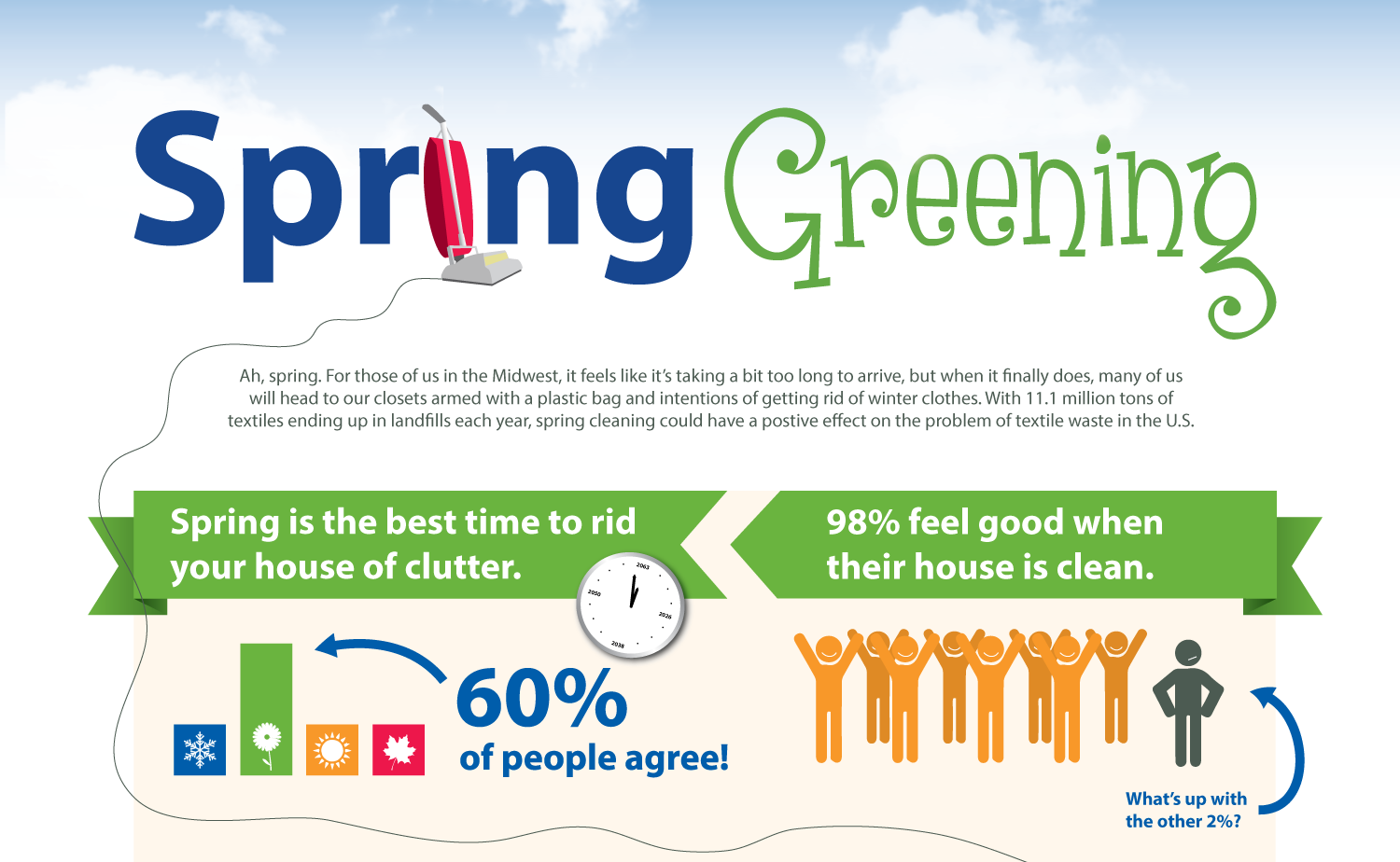Roll up your sleeves, crack the windows and let's clear out some of this clutter!
That's the rallying cry for many Americans when the months of March and April arrive. For whatever reason, the warming temperatures of spring set off an internal alert for people to clean, organize and de-clutter their homes. Getting rid of unused clothing is a key part of the process for many spring cleaners, and although it might not be the reason for your spring cleaning expedition, disposing of your extra clothing the right way can turn your spring cleaning into spring greening.
As CEO of USAgain, the textile recycling company which collected 58 million pounds of textiles for reuse and recycling in 2012, my stance on how one should dispose of unwanted clothing is clear: all surplus textiles should be given a "second life," whether that means as a gift to a family member, a charitable donation, or a deposit in a USAgain bin.
In our continuous strive toward zero textile waste, we at USAgain find it important to learn about people's recycling behaviors. How likely is the average person to recycle an old t-shirt? How far will a person drive to recycle that extra pair of shoes? Do people view recycling as a necessary step to environmental sustainability?
We recently conducted a survey to answer these questions and more. The results gave us reason for optimism, but at the same time, served to remind us that we're far from our goal of zero textile waste.
Click the infographic below for a full visual breakdown on spring greening.
Of 800 individuals that responded to the survey, 81 percent responded they "always" or "usually" recycle, even if it requires some effort. This is good news because much of the time, recycling does require effort. Increasing the convenience of recycling is a vital step toward increasing recycling and reducing waste, but for some materials, recycling will likely always require at least some extra effort or a lifestyle change.
We also asked people what they do when their shoes start to wear down and are no longer fit to be worn. We found that, unfortunately, 24 percent of respondents throw away their worn-down shoes. According to Recyclebank, 300 million pairs of shoes are landfilled every year. Leather shoes take 50 years to break down and like all organic materials, they release climate-changing methane when decomposing in a landfill. We were also interested in learning how sustainability affects purchasing decisions, because every newly-produced article of clothing puts an additional burden on the environment. Clothing made from recycled materials reduces the environmental pollution, but only 13 percent of respondents said the presence of recycled materials greatly affects their purchasing decision.
So, it seems as if people are more willing to protect the environment by changing their recycling habits than their purchasing habits. A healthy 83 percent of respondents said they were "extremely" or "very" likely to use a clothing recycling bin if it were around the corner from their home.
What can we take away from this information? For one, people will recycle when it's convenient. We salute all those willing to go the extra mile, in the literal and figurative sense, by recycling their stuff no matter how far they need to drive or ship an item. Unfortunately, there are also some who are reluctant to recycle even when it's completely convenient, like curbside pickup is. Most people, however, fall into the in-between category: they'll recycle if it's relatively easy.
Where do you fall on the recycling map? When you get to cleaning out your closet this spring, don't let your bag of unneeded clothes wind up in the trash can. Fact is, your clothes are needed by someone out there, and getting them to their second life might be easier than you expect. There might even be a collection bin around the corner.
Mattias Wallander is the CEO of USAgain, the textile recycling company which recently conducted a survey on recycling habits and behaviors.
Follow Mattias Wallander on Twitter: @MattiasWall
